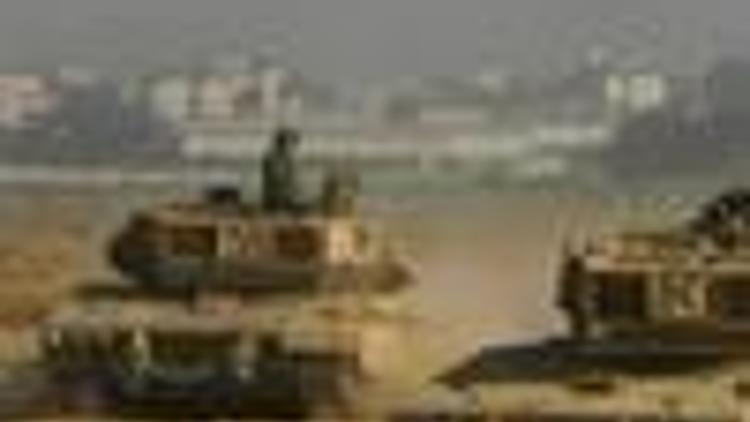AFP
Oluşturulma Tarihi: Haziran 20, 2008 11:52
A truce in Gaza, a president in Lebanon, peace talks between Israel and Syria: the Middle East’s myriad crises seem to be calming, but analysts warn the respite will only last until a new U.S. president is elected.
A fragile Hamas-Israel truce began in Gaza on Thursday, two years after Egypt first sought to mediate such a deal and less than a month after Qatar oversaw an accord in Lebanon that ended a months-long constitutional crisis.
At the same time, Syria and Israel announced the resumption of indirect peace talks, broken off eight years ago, under Turkish mediation.
And while the regions potentially most volatile crisis, Iran’s contentious nuclear program, might yet explode, analysts say Washington’s absence has allowed the regions "enemies" to speak among them for a change.
"The U.S. is absent because of the (presidential) election campaign, which has allowed actors in the region to pursue diplomacy with some success," said Amr Hamzoui of the Carnegie Endowment for International Peace.
"But that doesn’t mean there’s a real stabilization in the Middle East," the Washington-based expert said.
Gamal Abdel Gawad, from the Cairo-based Al-Ahram Centre for Strategic Studies, says that despite the apparent progress, the region retains its ability for conflict.
"Concerns remain because the Iranian nuclear dossier has not been resolved and Israel is still worried about Hamas, (Lebanese Shiite movement) Hezbollah and the Syrian-Iranian alliance," he said.
"Initiatives were taken by regional actors who each want to realize tactical gains pending things becoming clear at the White House," after the presidential election in November, said Abdel Gawad.
U.S. President George W. Bush has "ended up supporting these initiatives after realizing the failure of his policies in the region toward Syria, Iran, Hezbollah and radical Arab movements like Hamas," he added.
However, said former Arab Israeli MP Azmi Beshara, "It’s very premature to speak of a real detente, what were seeing is a wearing out of the policies of the neo-conservatives surrounding Bush." �
Moderate leaders such as Palestinian president Mahmud Abbas have "lost their bet on Bush".
As a result, says Beshara, Abbas last month went against U.S. policy and called for a resumption of national dialogue with Hamas, which routed his forces from Gaza a year ago.
"Even Israel has ignored the American policy of isolating Syria by beginning indirect negotiations with Damascus," he said.
"But the Syrians know that no serious progress will be made without American involvement and pending the new American administration."
Former Israeli foreign minister Shlomo Ben Ami, says that an Israeli-Syrian peace deal is "a strategic necessity" for both countries.
For Syrian President Bashar al-Assad, recovering the Golan Heights, which Israel has occupied since 1967, is a "vital tool for cementing the legitimacy of his regime," he wrote in the Israeli daily Yediot Aharonot.
Peace with Damascus is also strategically important for Israel, he says, evoking the "horrific" scenario of Iran getting involved in a regional conflict sparked by Israel-Hamas that could also drag in Hezbollah and Syria.
"As always, a great deal depends on the willingness of the United States to distance itself from military solutions and rigid ideology in favor of a practical approach to finding a solution to the conflict," he wrote.
The U.S. has ended up marginalizing itself because of its steadfast refusal of any contact with its foes, Hussein Agha and Robert Malley wrote in a New York Times editorial.
"In one case after another, the Bush administration has wagered on the losing party or on a lost cause."
The U.S. has "pushed its local allies toward civil wars -- arming (Abbass) Fatah against Hamas; financing some Lebanese factions against Hezbollah -- they could not win. And it has failed to understand that its partners could achieve more in alliance than in conflict with their opposition."
Photo: AP


